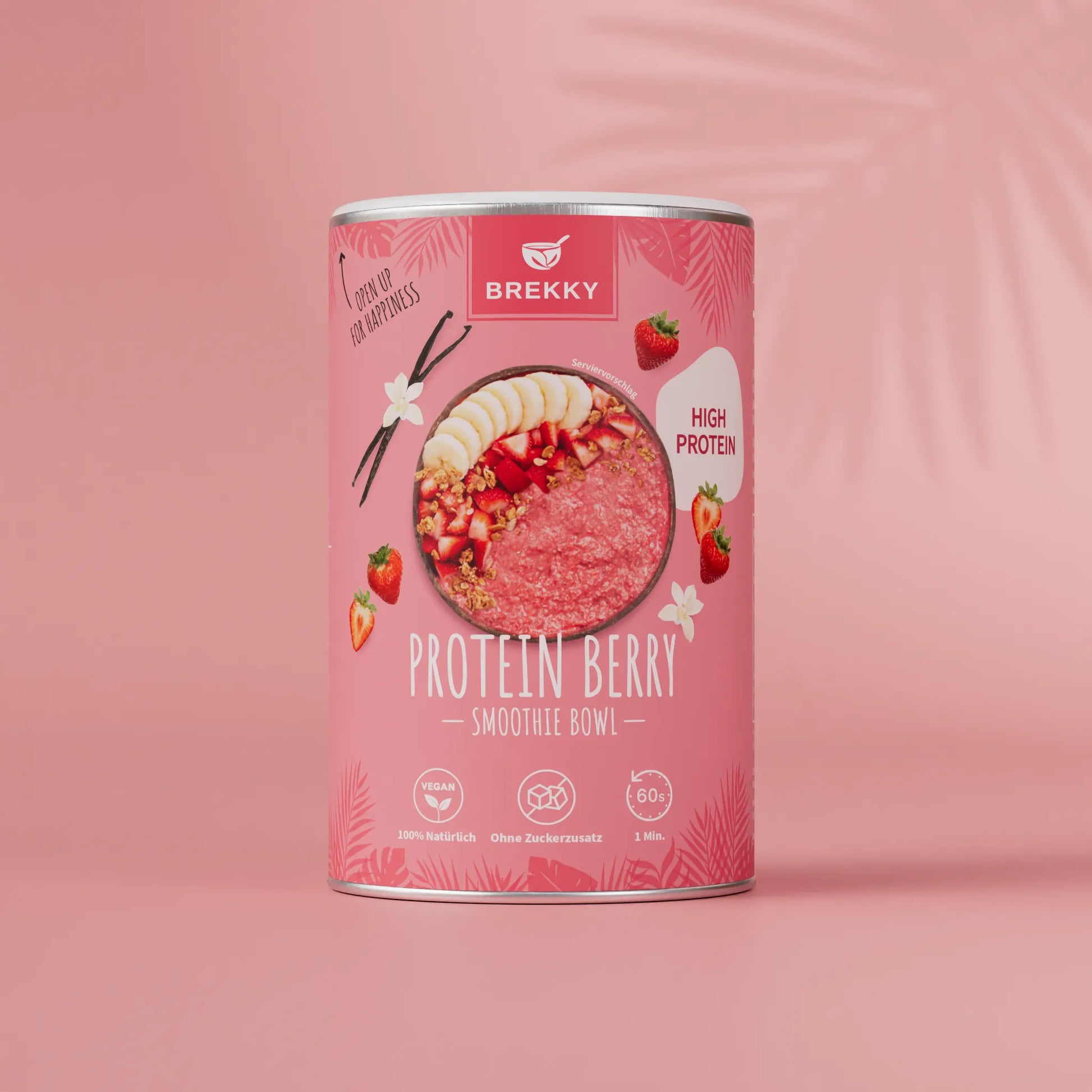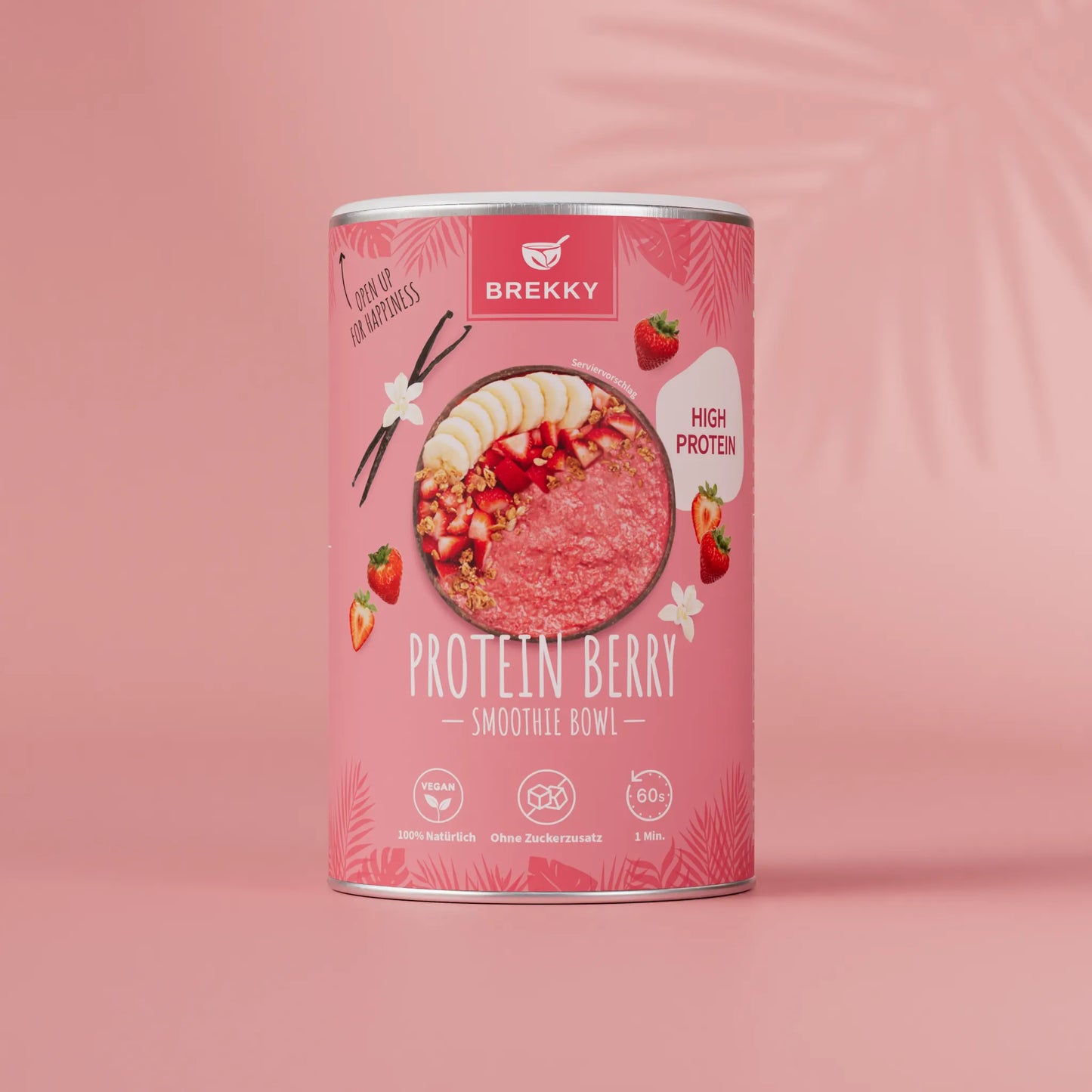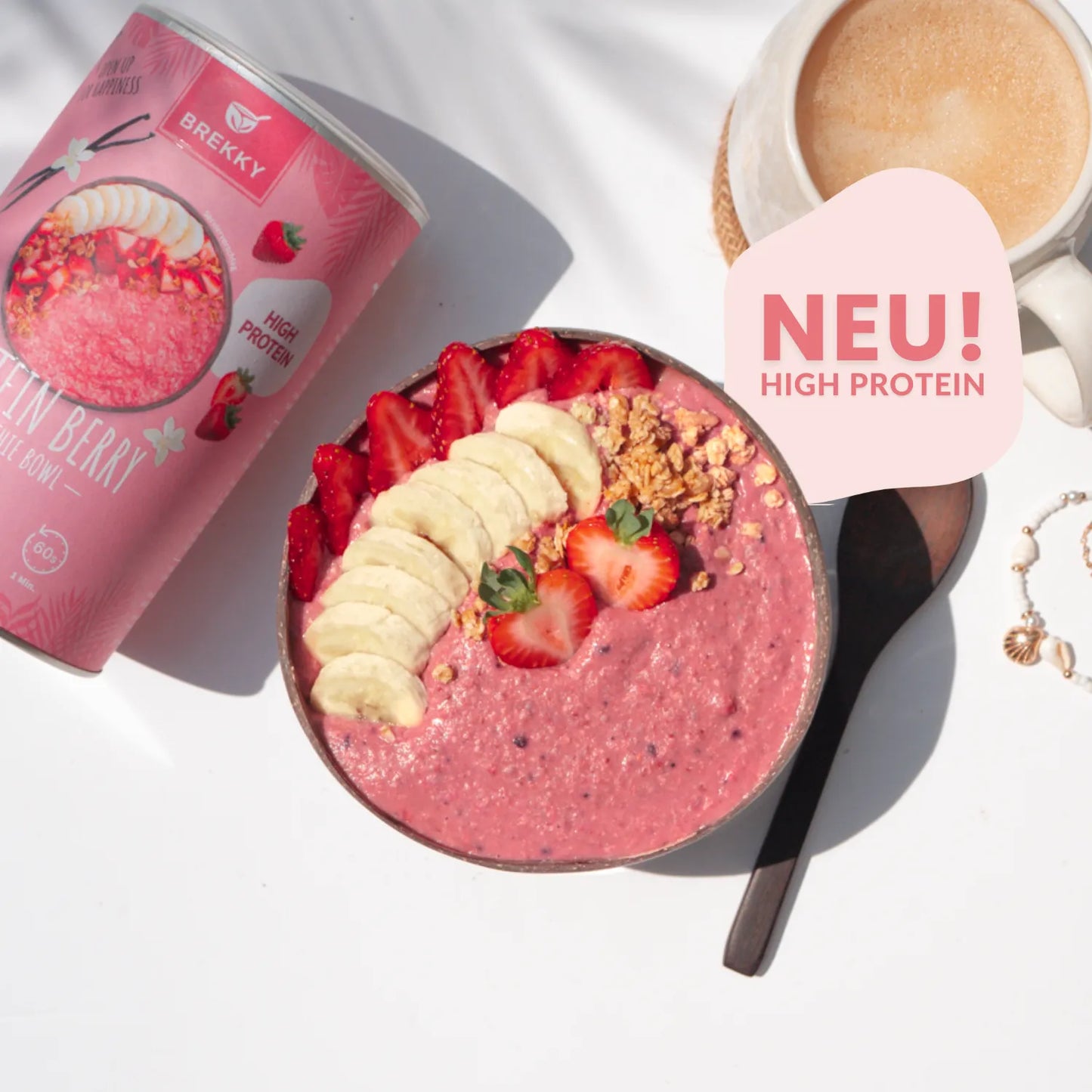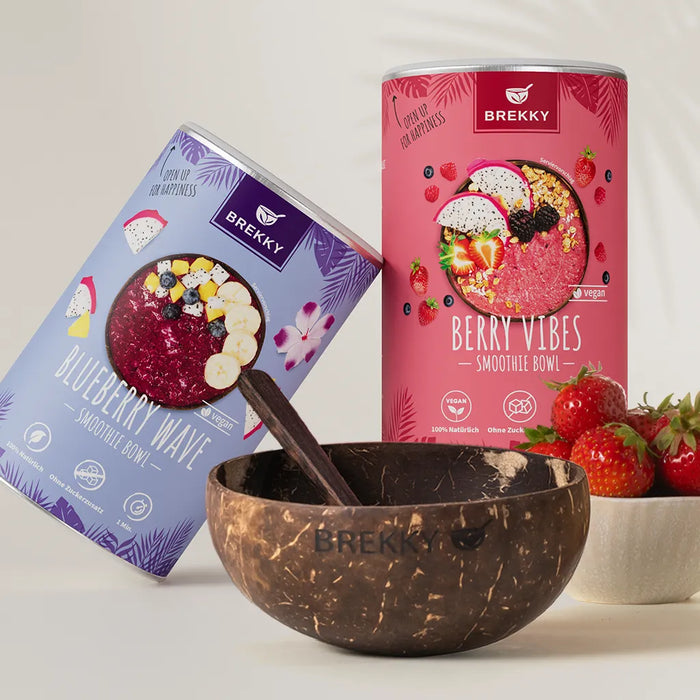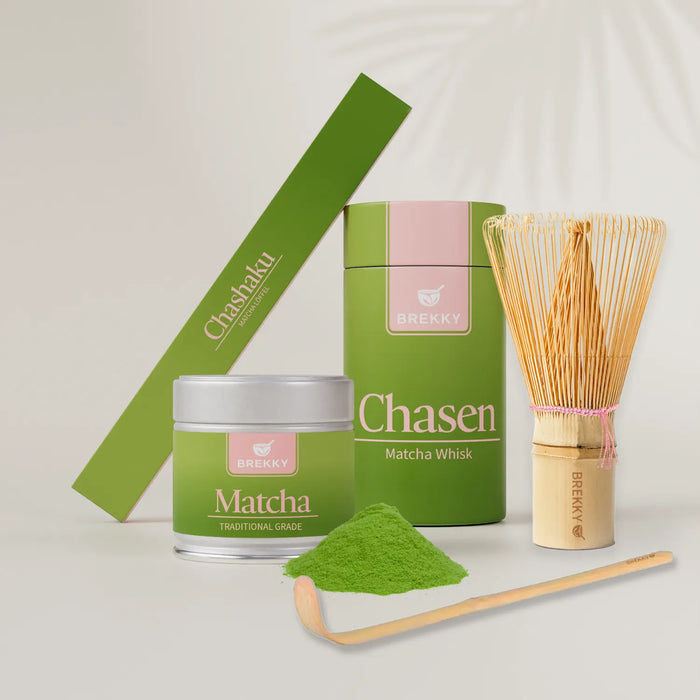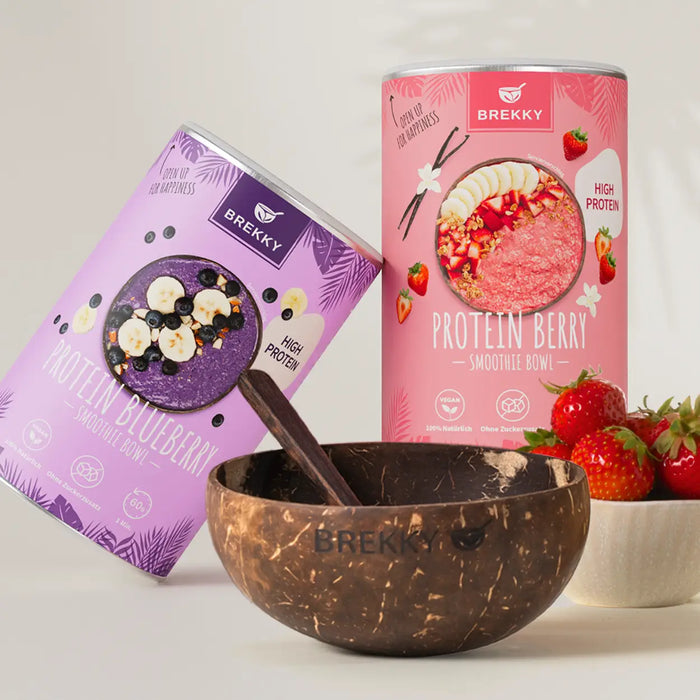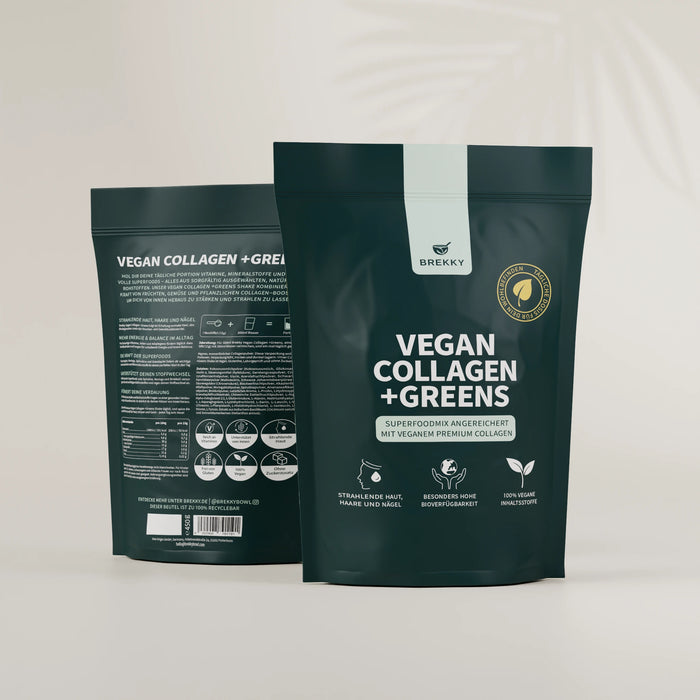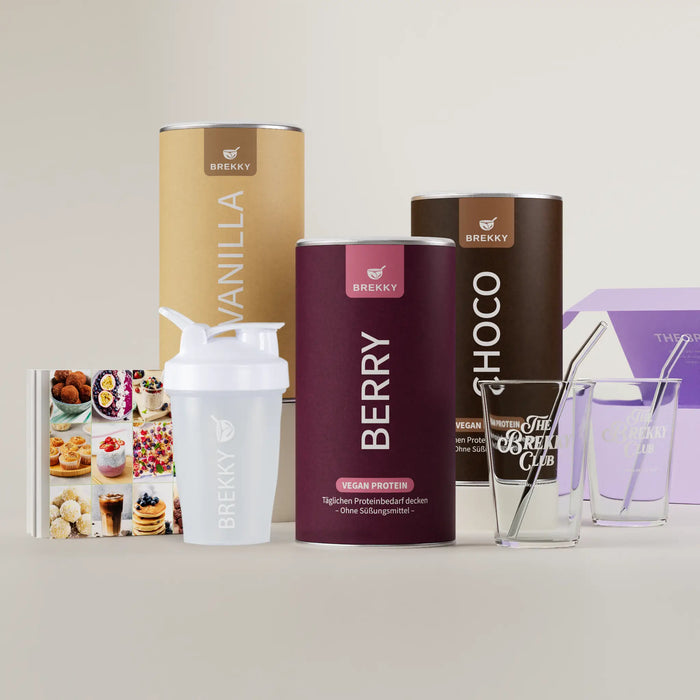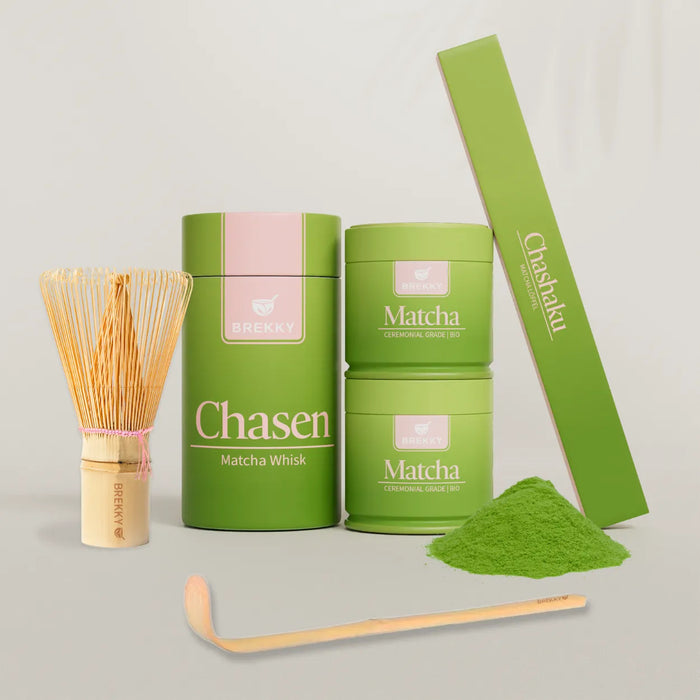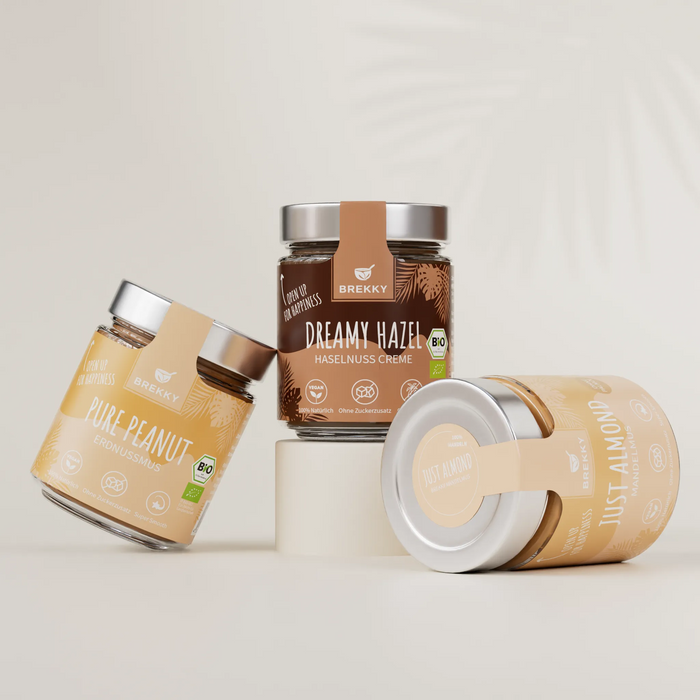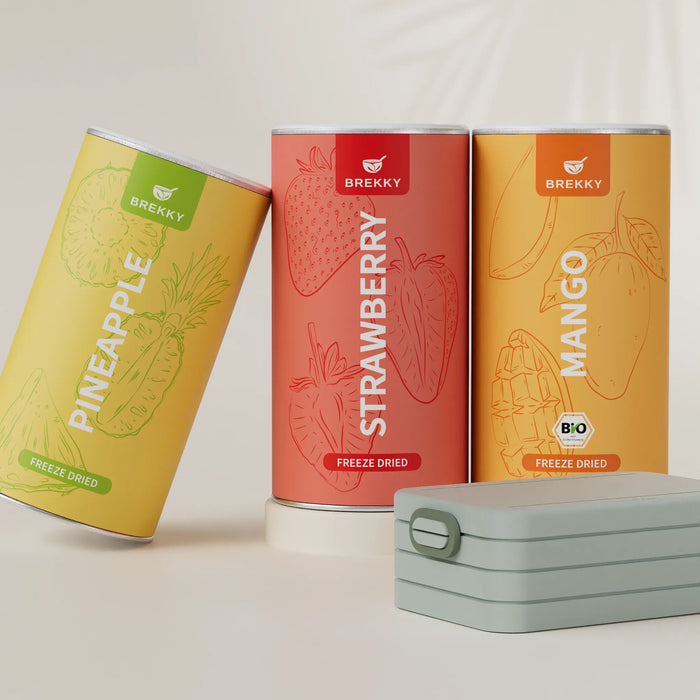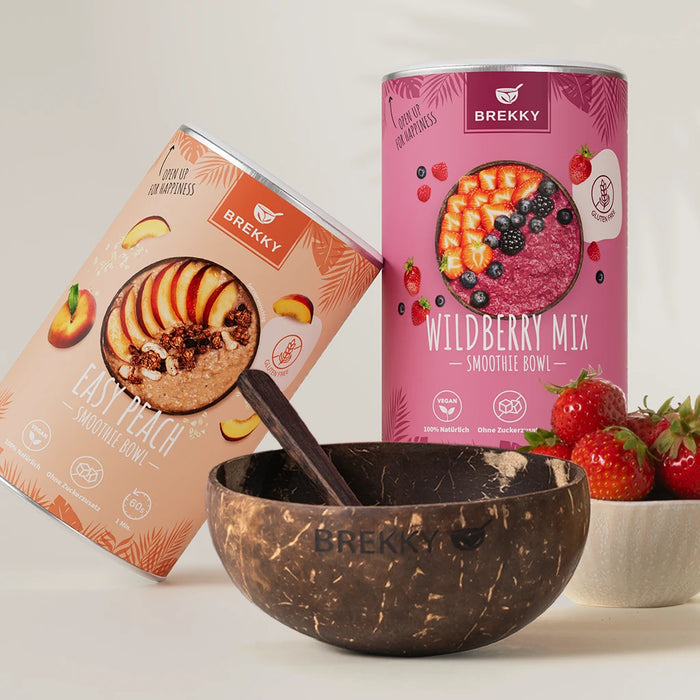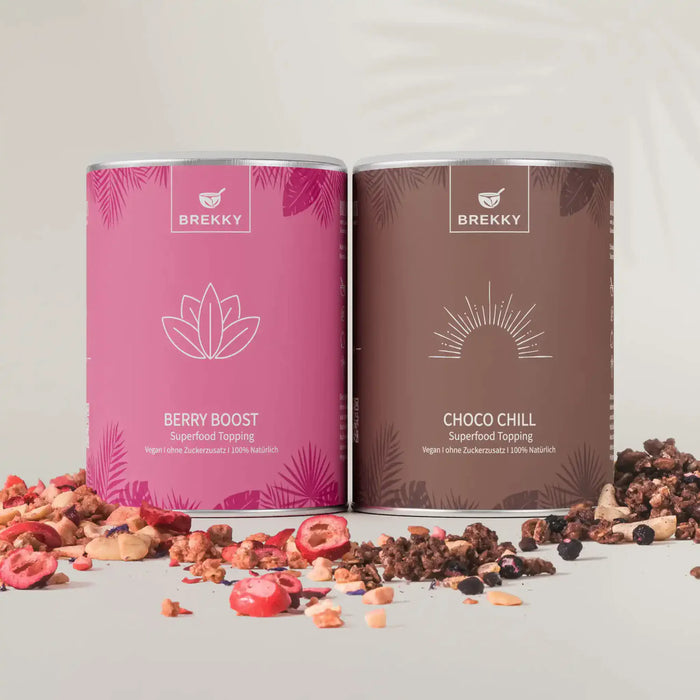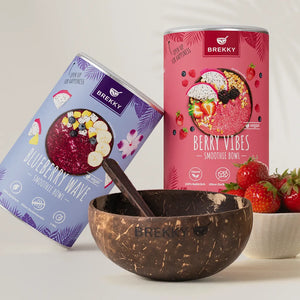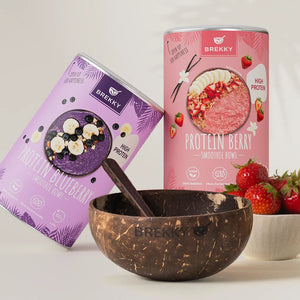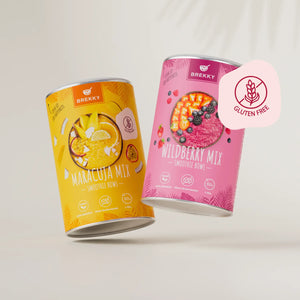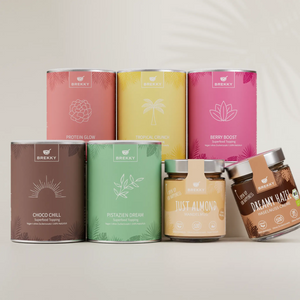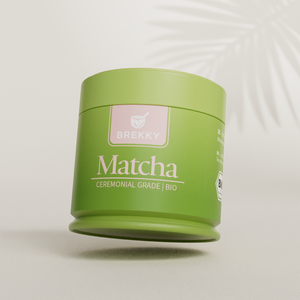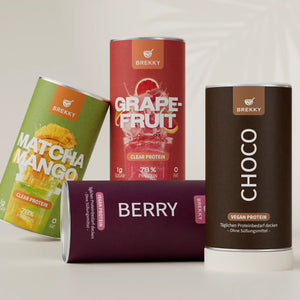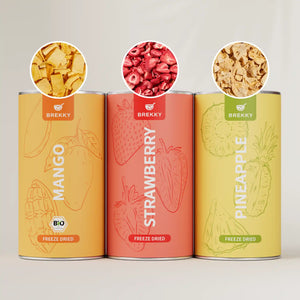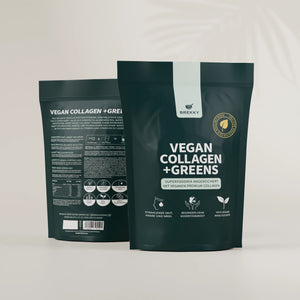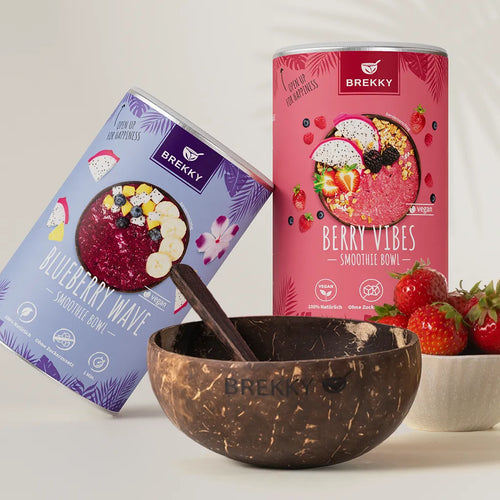Protein breakfast for muscle building: How to start the day strong and fit
Contents
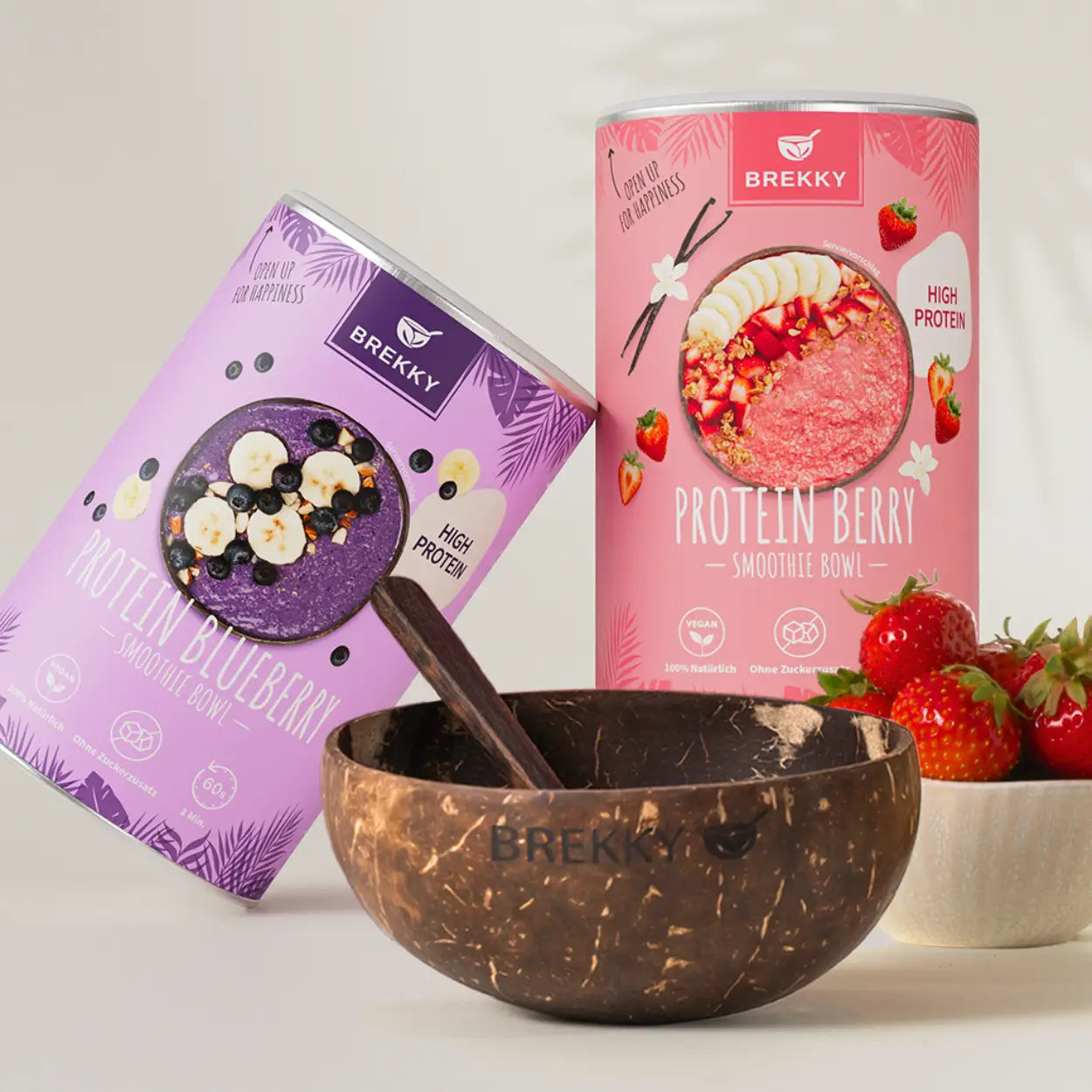
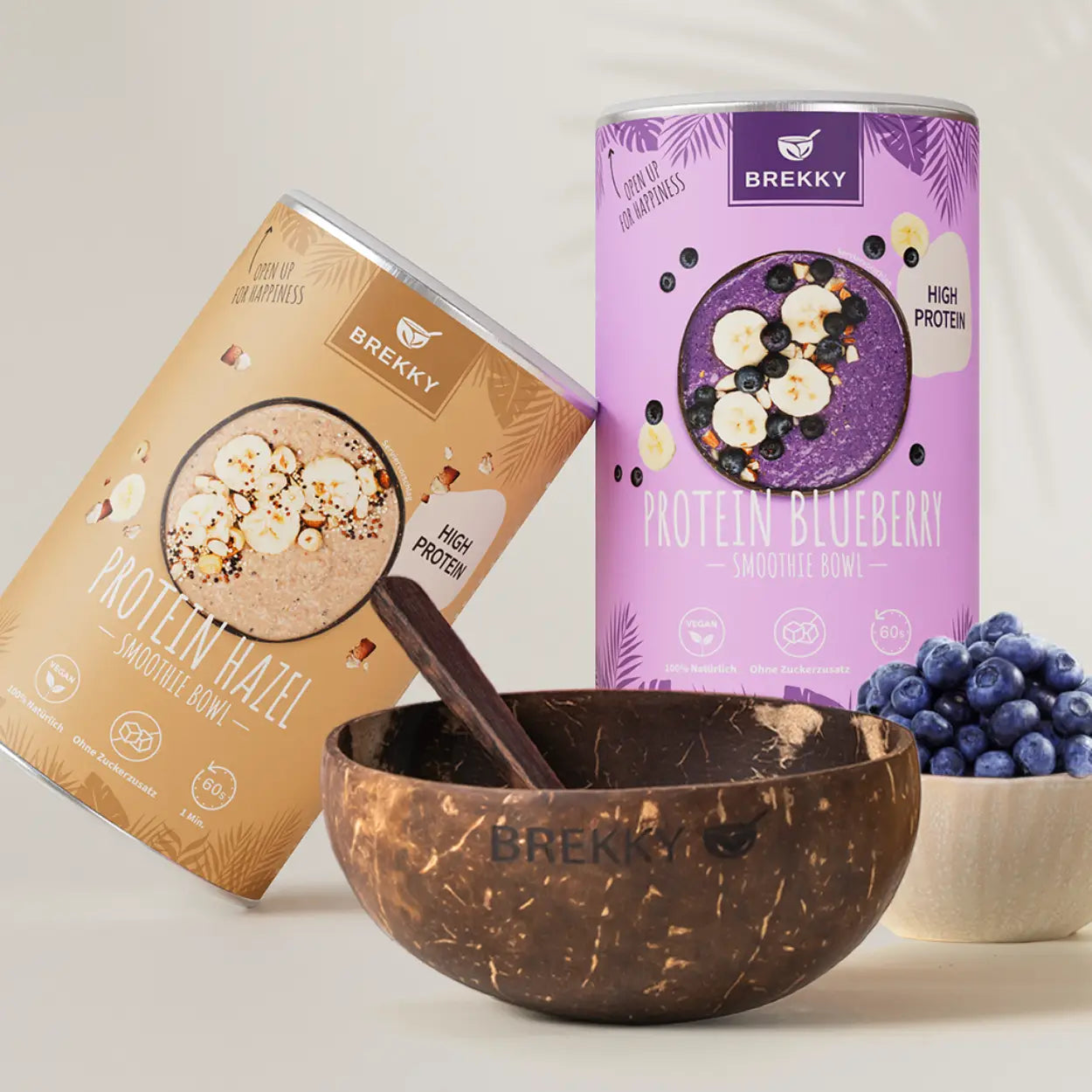
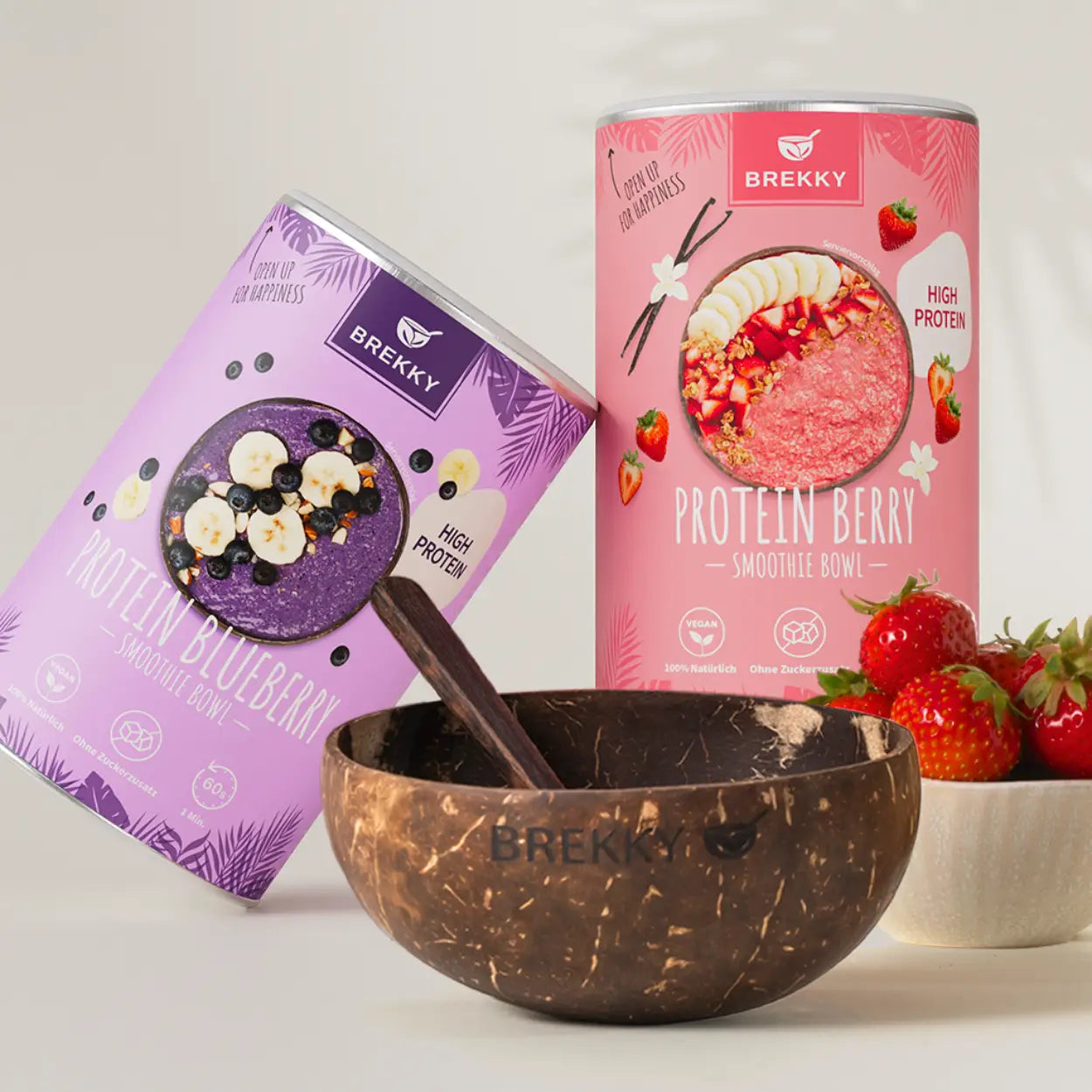
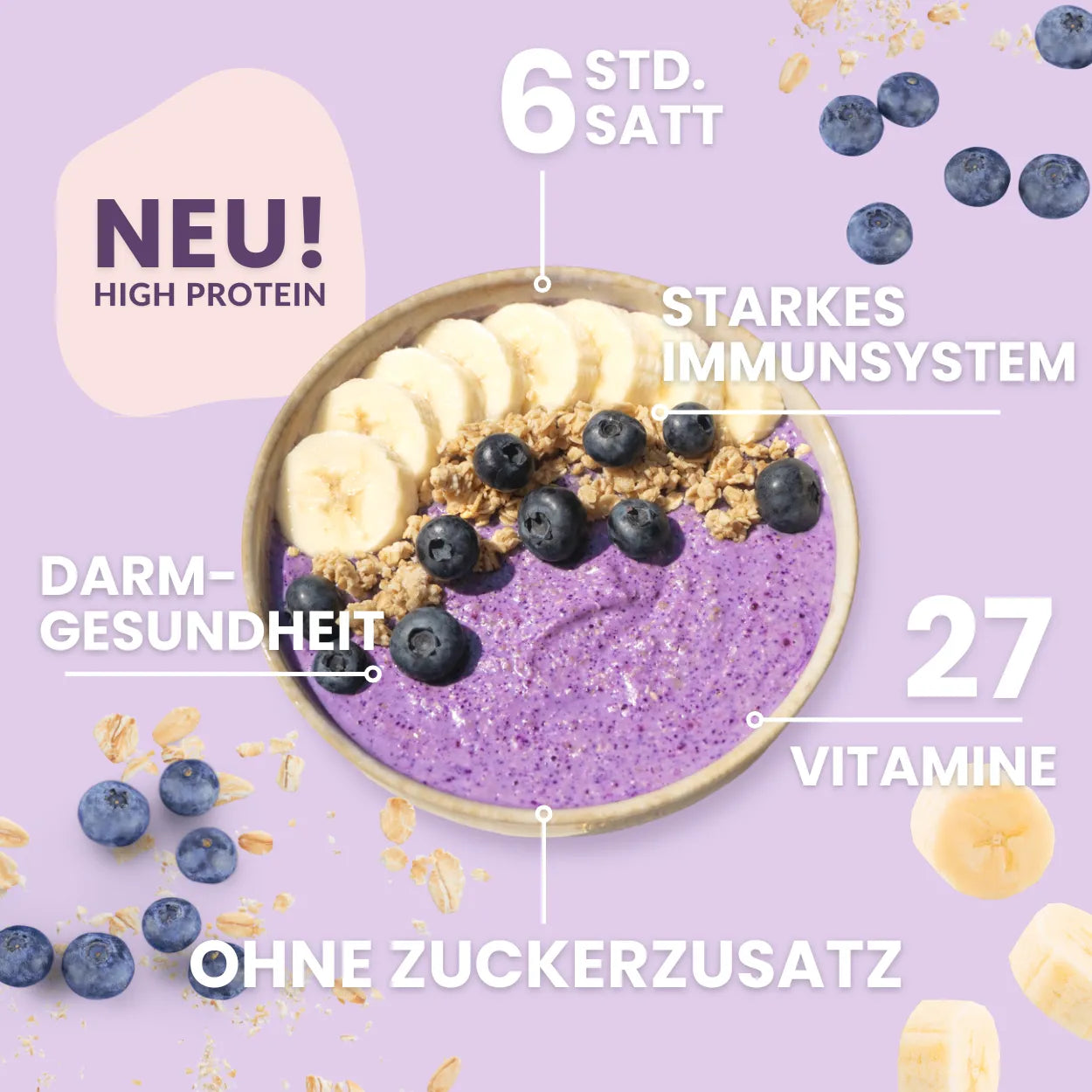
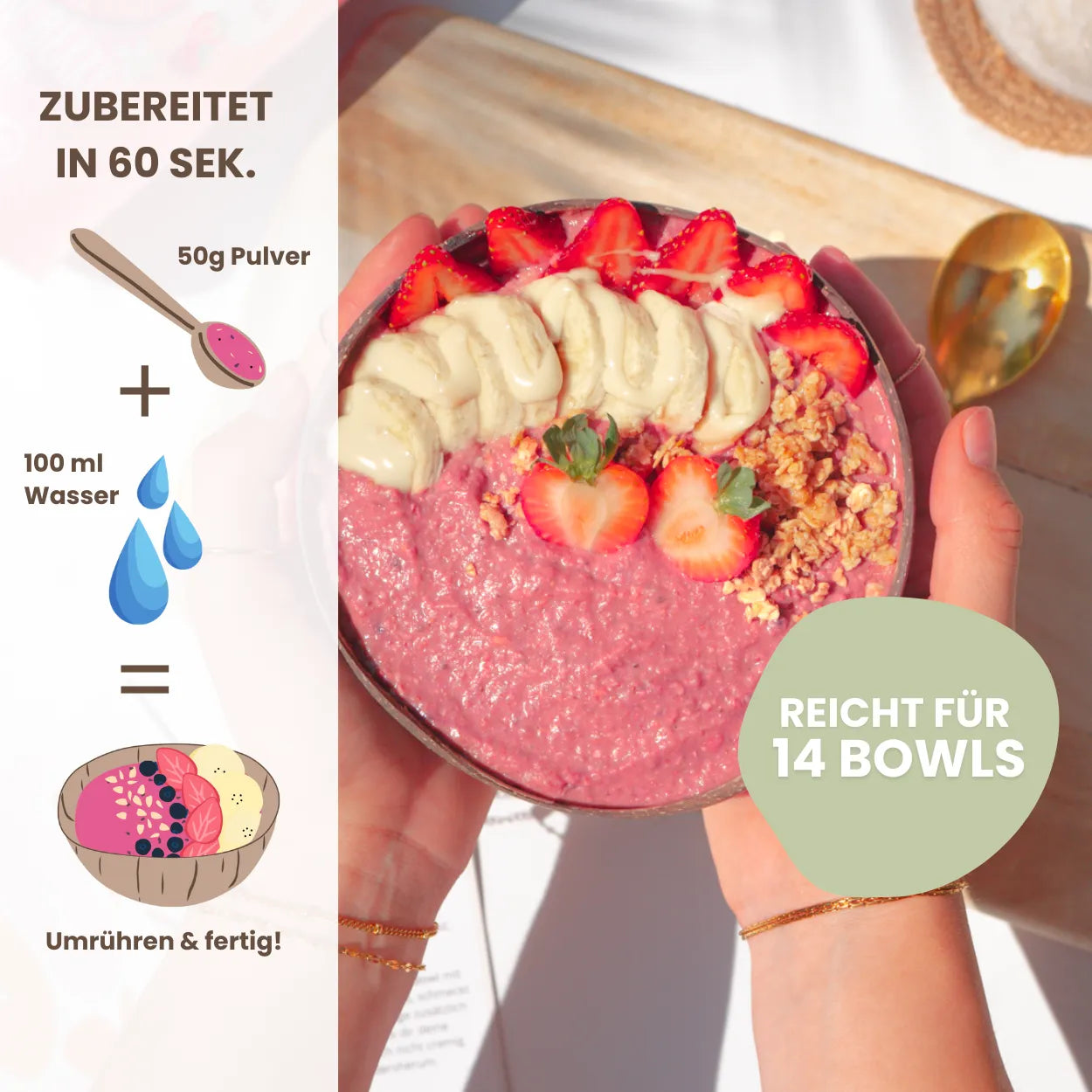
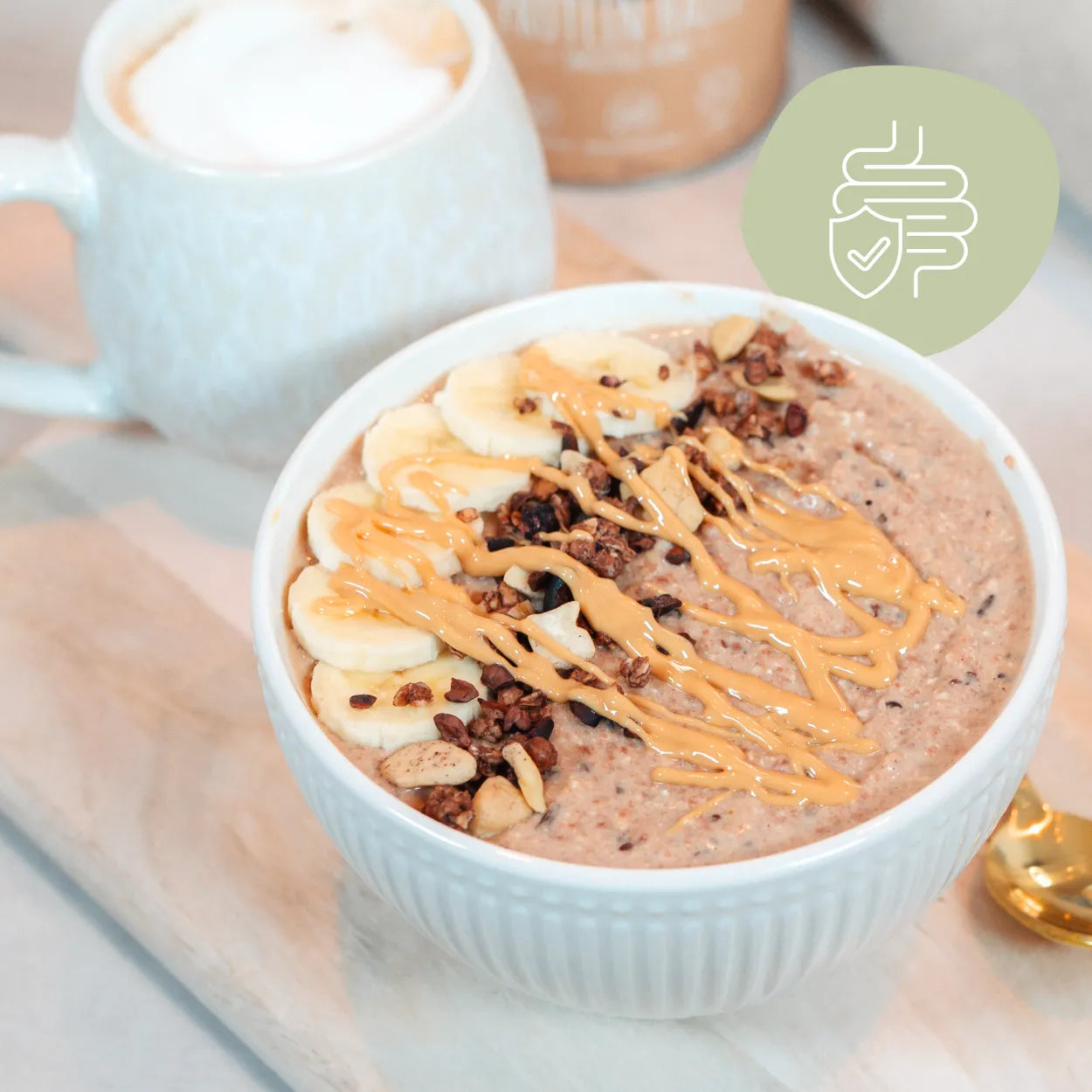
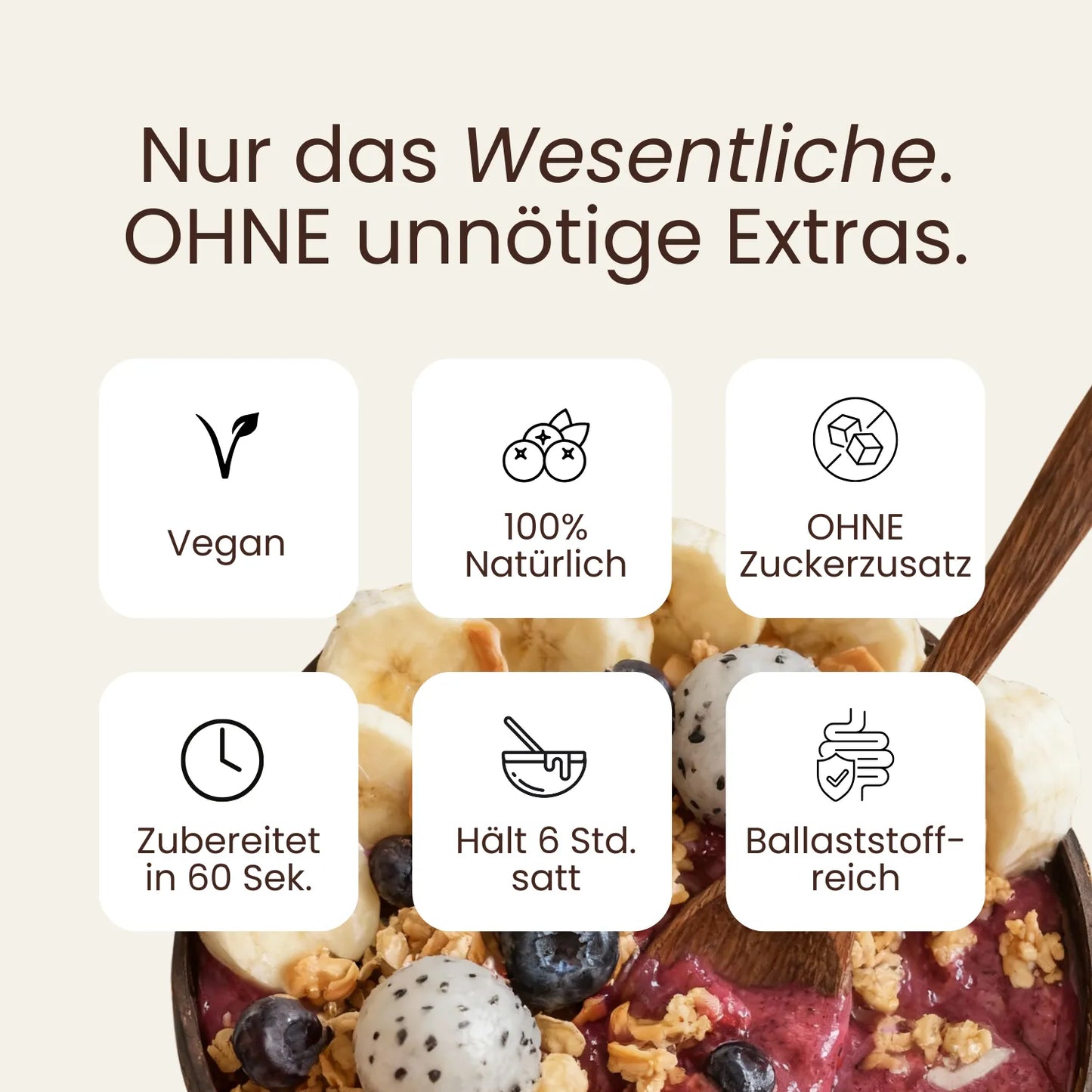

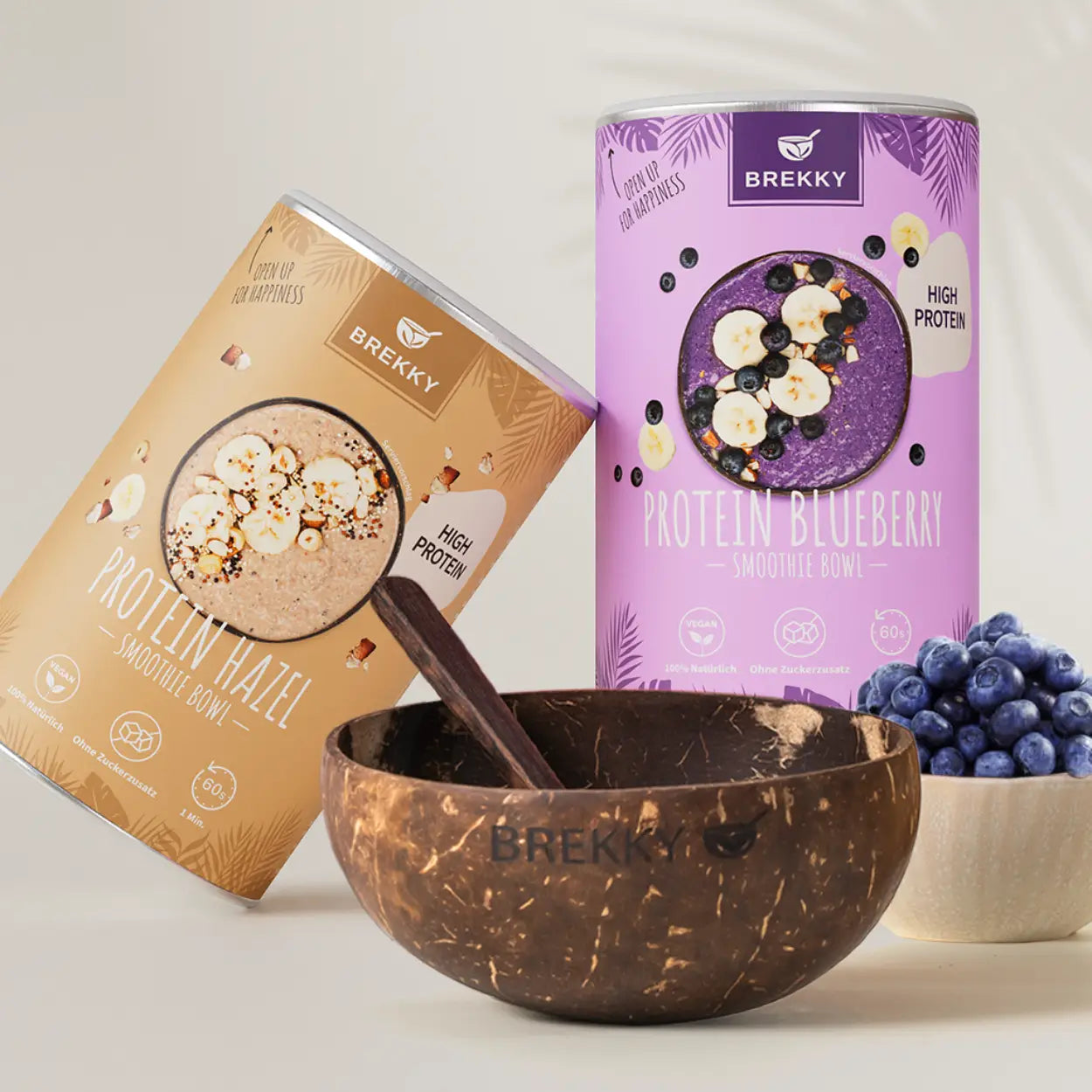
The optimal amount of protein for muscle building at breakfast
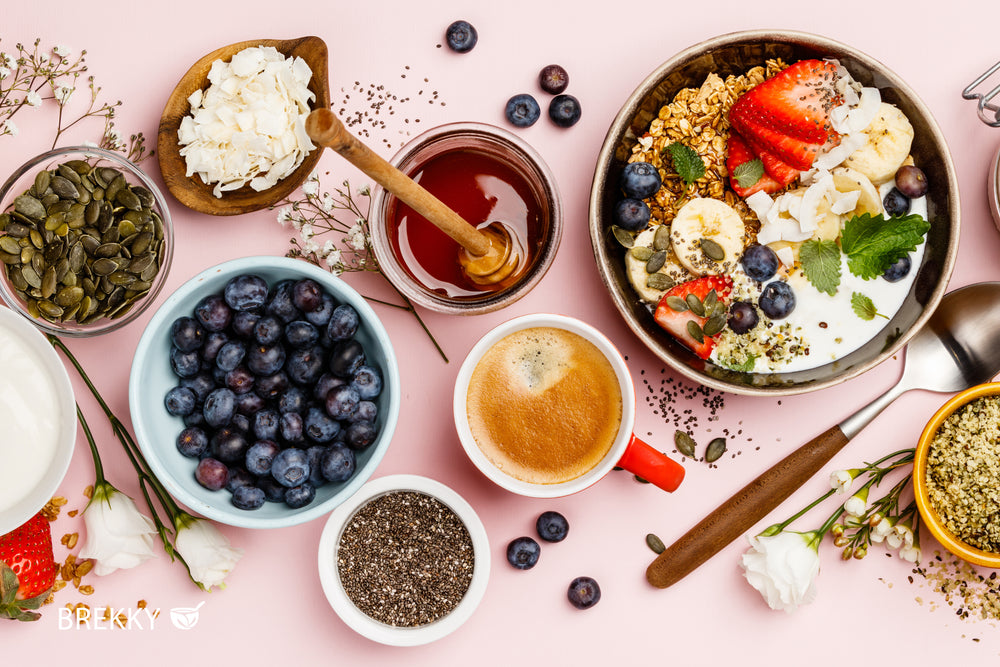
Why especially in the morning?
- Intake after sleep : After sleep, protein stores are partially depleted and your body is particularly receptive to nutrients.
- Active digestion and metabolism : A protein breakfast boosts the metabolism and supports the body throughout the day.
- Early satiety : High-quality protein keeps you full for longer and helps reduce unnecessary snacks.
Of course, protein needs also depend on your training goals and personal lifestyle. If you prefer a completely natural breakfast, you have many foods to choose from that you can combine as you wish to get your protein intake. The next section provides an overview of the most popular natural protein sources and their benefits.
Natural protein sources for your fitness breakfast
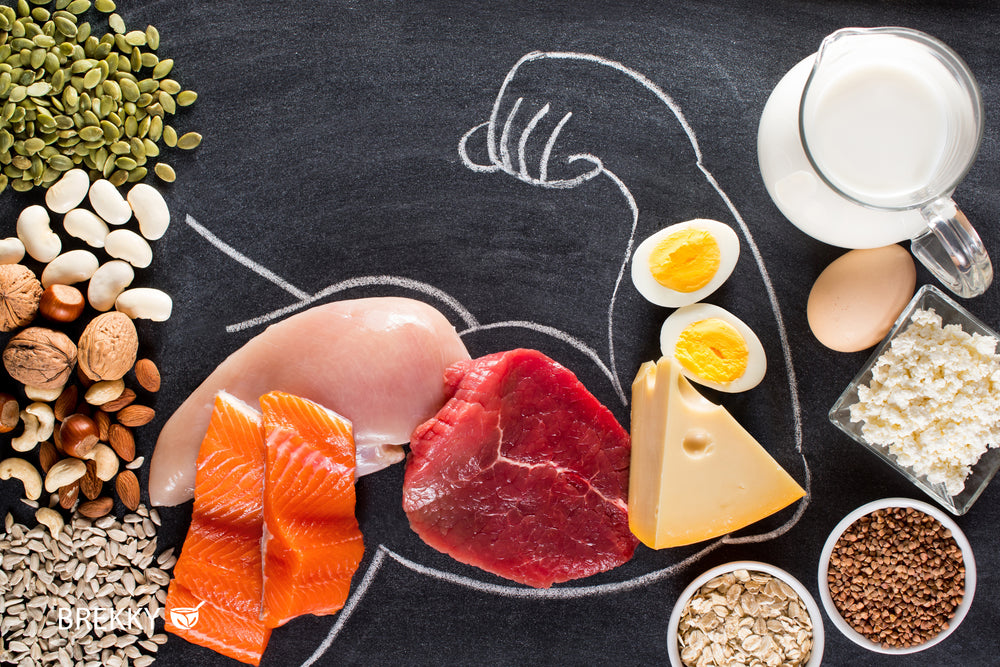
Low-fat quark, cottage cheese and skyr
These dairy products impress with their high protein content and low fat content. Whether as a spread, in muesli, or on their own with fruit – they provide a creamy consistency and deliver around 10 grams of protein per 100 grams in a very short time.
eggs
A classic for a protein breakfast The breakfast egg is a staple in all its forms: boiled, scrambled, or omelet. Eggs are rich in essential amino acids, vitamins, and minerals. The yolk, in particular, contains a wide range of micronutrients, which is why eggs combined with vegetables or whole-grain bread are a great breakfast option.
Oat flakes, whole grain products and pseudocereals
Although grain products provide less protein than animal sources, they are packed with complex carbohydrates and fiber. Oatmeal, whole-grain spelt bread, or pseudo-grains like quinoa and amaranth further increase the total protein content of breakfast. Combined with dairy products or plant-based drinks, this can provide a substantial protein boost.
Legumes
Lentils, chickpeas, and beans may not be a common feature in a traditional breakfast, but there are still some delicious ideas for them. For example, you can make a mild hummus with chickpeas or conjure up a red lentil spread. Combined with avocado, spinach, or tomato on whole-grain bread, this creates a quick protein breakfast without any powder.
Nuts and seeds
Almonds, walnuts, and pumpkin seeds are rich in valuable fatty acids and also contain moderate amounts of protein. They're great stirred into muesli, quark, or porridge. Their crunch and healthy fats make them ideal for a varied and tasty breakfast while you're building muscle.
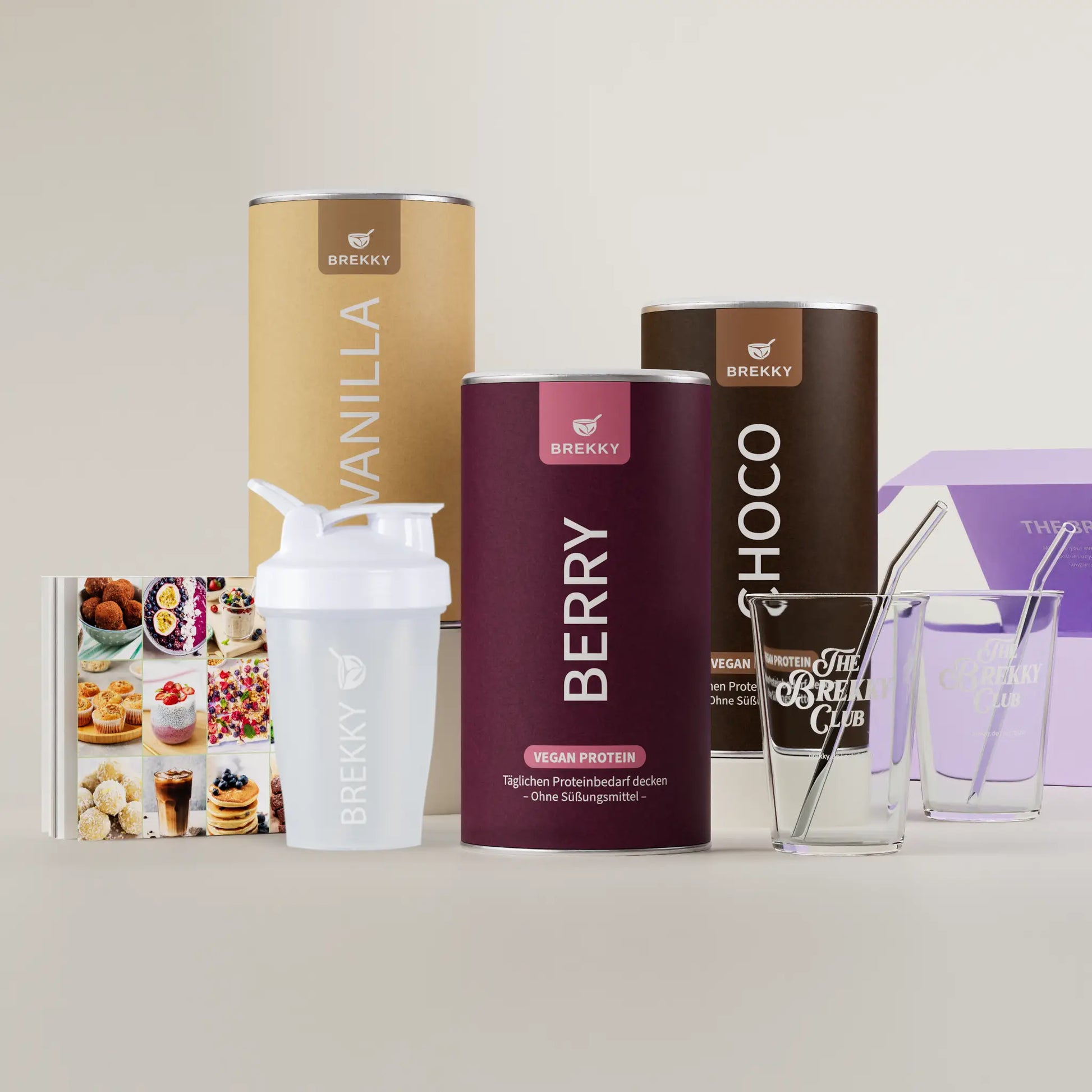
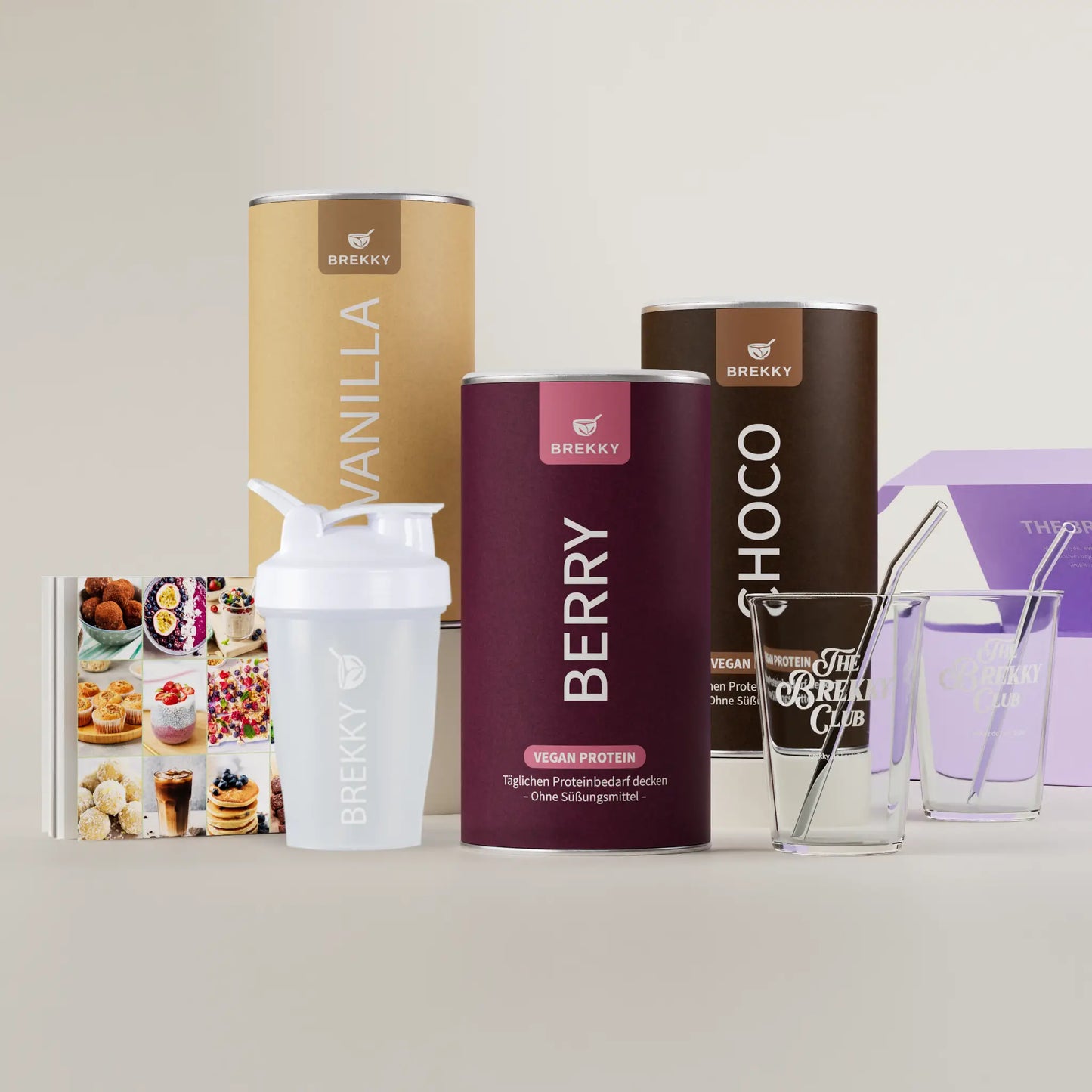

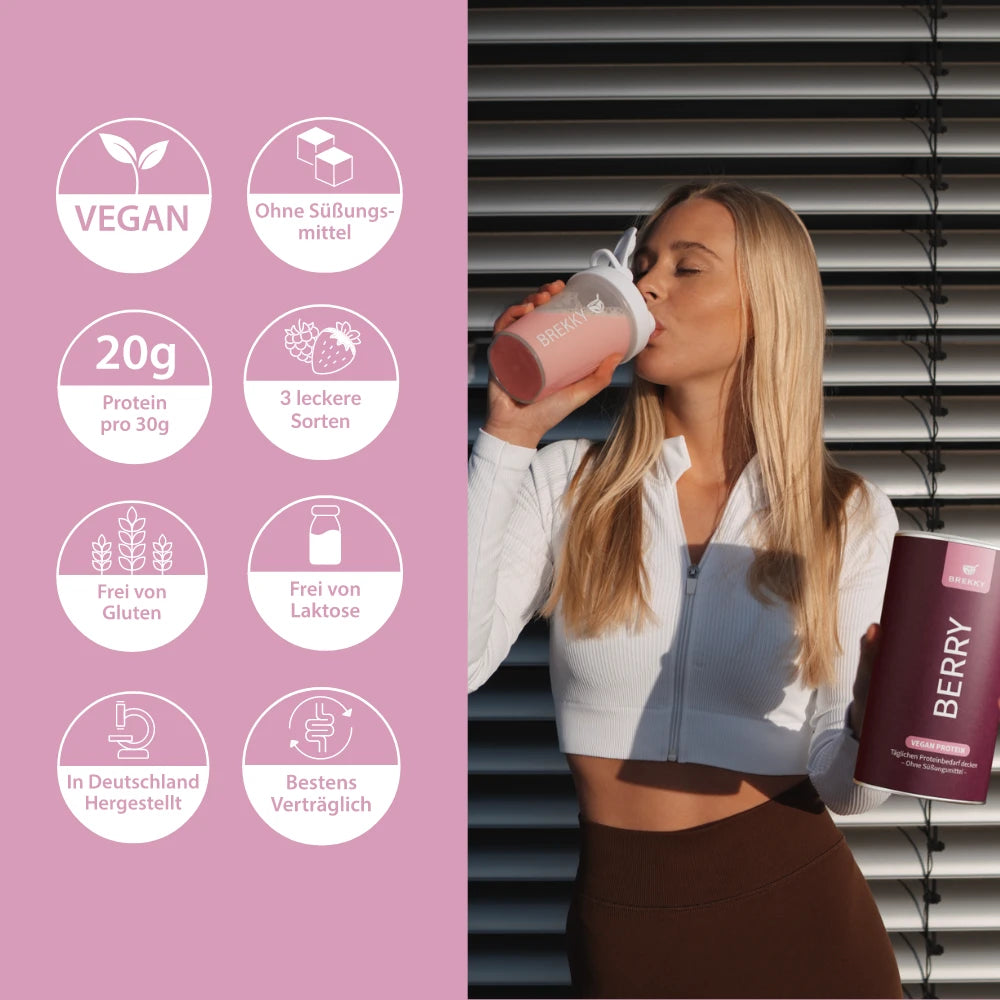
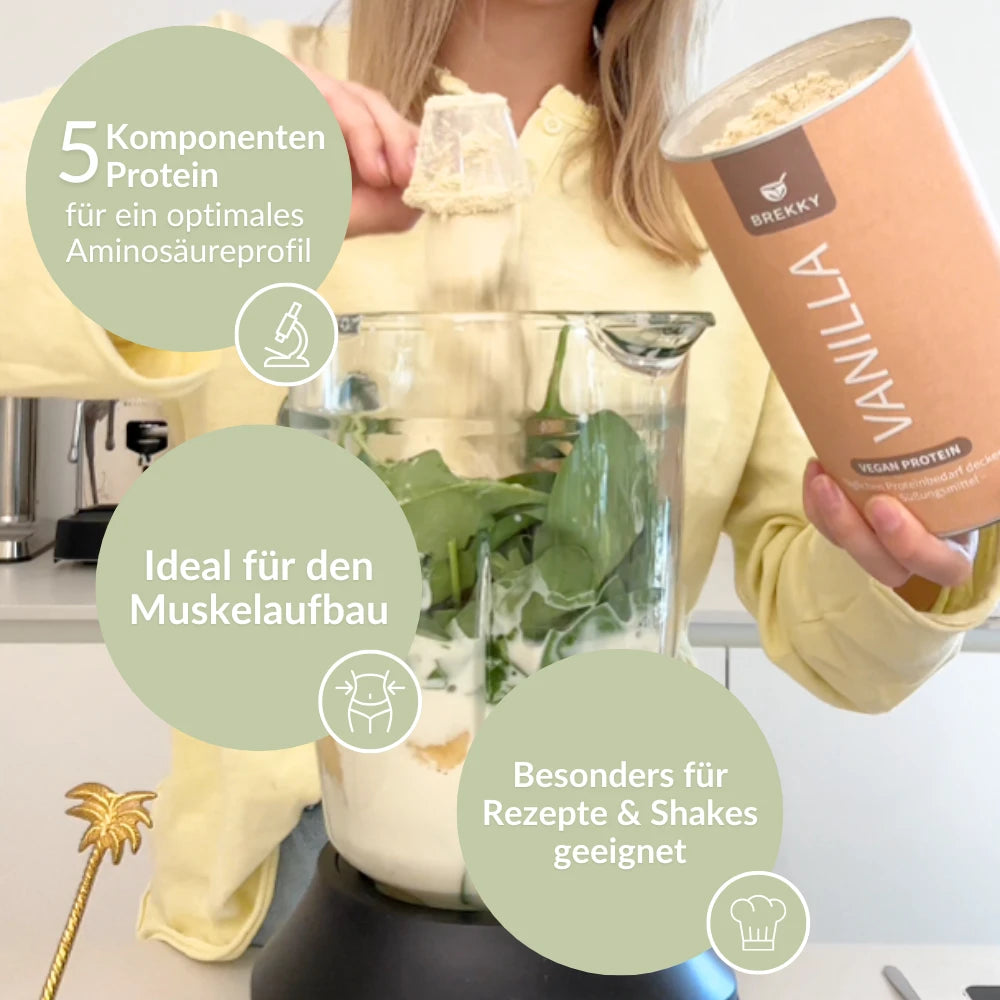
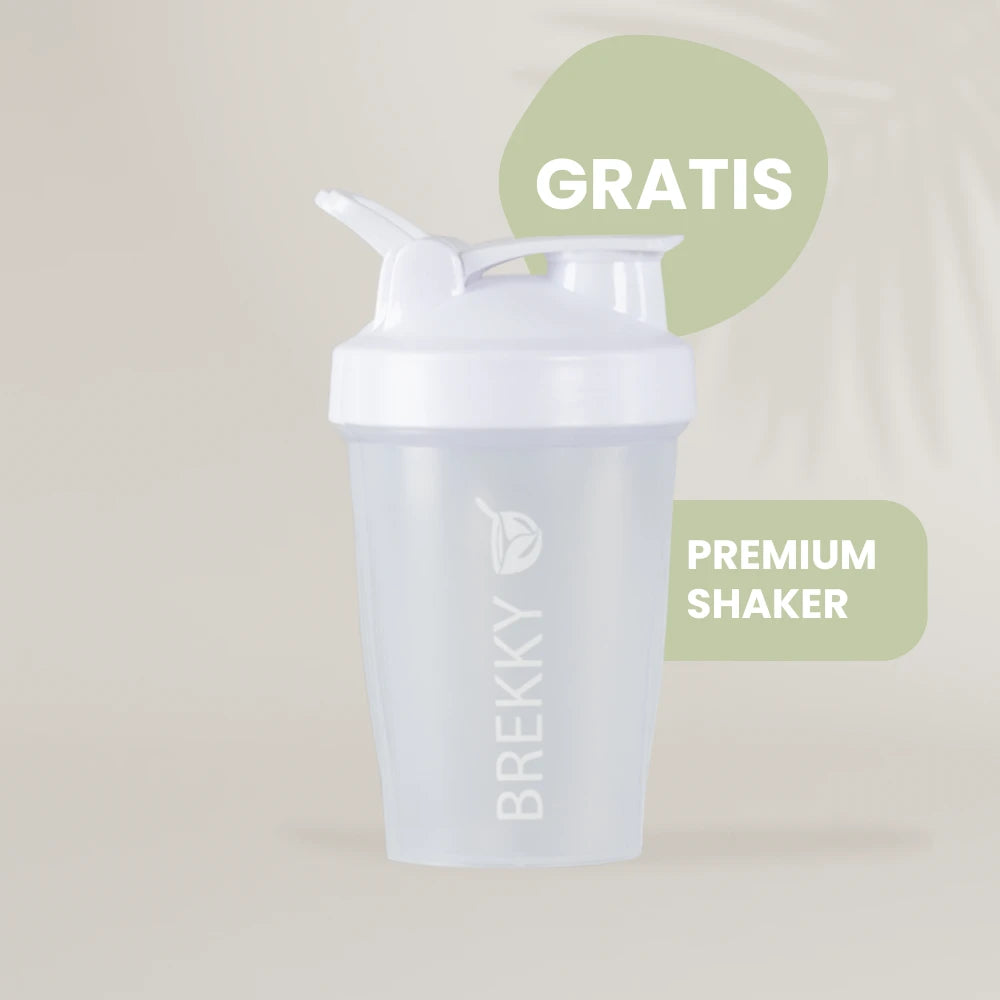


Protein powder and supplements for breakfast
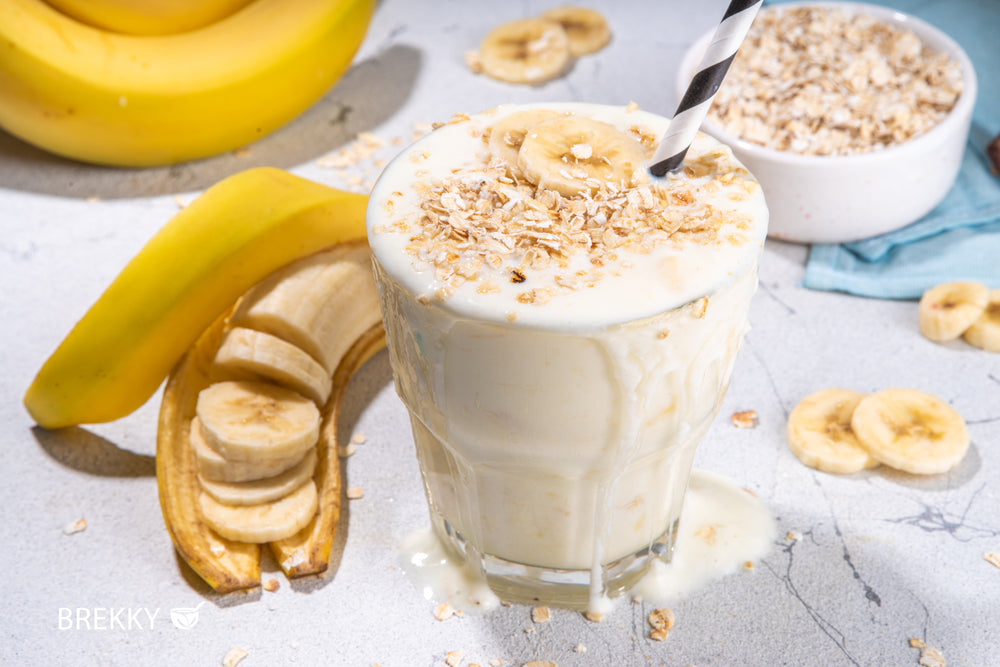
When is whey protein useful?
Whey protein is particularly popular for breakfast due to its rapid absorption. Immediately after waking up, your body needs readily available amino acids to complete the nighttime regeneration phase. Whey is digested quickly and quickly supplies the muscles with important building blocks for growth.
Casein, soy & co.
Those who prefer longer-lasting, satisfying options can opt for casein protein, which is slower to digest. Plant-based alternatives such as soy, pea, or rice protein are also good for building muscle, especially for people with lactose intolerance or following a vegan diet.
Protein bars for breakfast
Sometimes there's little time in the morning, and a quick snack is needed. Protein bars for breakfast can be a stopgap solution to provide enough protein. However, you should make sure the sugar content isn't too high and that you're still adding a source of vitamins and fiber. A bar can be a practical addition, but it shouldn't be your only source of nutrition in the morning.
Benefits of a protein shake or bar
- Time saving : No complicated preparations
- Targeted nutrient supply : Simple quantity measurement
- High protein density : Ideal for people with increased protein needs
However, a breakfast based entirely on powder contains less fiber and other essential nutrients than a fresh meal. So, if you have enough time, you can add a few fresh ingredients to make your breakfast more balanced.
Four protein-rich breakfast recipes specifically for muscle building

Hearty protein breakfast: Protein omelet with vegetables
Ingredients (1 serving):
- 3 eggs (increase the egg whites if needed)
- 50 g low-fat quark or cottage cheese
- A handful of leaf spinach
- 1 small onion, chopped
- 1 tomato, diced
- Pinch of salt, pepper, herbs of your choice
Preparation:
- Mix the eggs with low-fat curd cheese and season well.
- Fry onions and diced tomatoes in a pan with a little oil.
- Add spinach and let it wilt briefly.
- Pour the egg mixture over it and let it set over medium heat.
Advantages:
- The omelette provides high-quality proteins, fiber and vitamins.
- The mixture of eggs and low-fat curd cheese significantly increases the protein content.
- Ideal for the Muscle building because it keeps you full for a long time and provides many amino acids.

Sweet protein breakfast: protein pancakes
Ingredients (2-3 small pancakes):
- 30 g oat flakes (fine)
- 1 banana (ripe)
- 1 egg
- 1 scoop of whey protein (flavor of your choice)
- Pinch of cinnamon (optional)
Preparation:
- Mash banana and mix with egg.
- Add oatmeal and whey protein.
- Let the dough swell briefly so that the oat flakes soften.
- Fry small pancakes in a pan over medium heat.
Tip:
- Top with berries or a spoonful of low-fat curd cheese.
- Alternatively, you can use plant-based protein powder to create a vegan recipe.
These pancakes boast an extra dose of whey protein, fiber from oats, and natural sweetness from bananas. They'll give you an energizing start to your day.
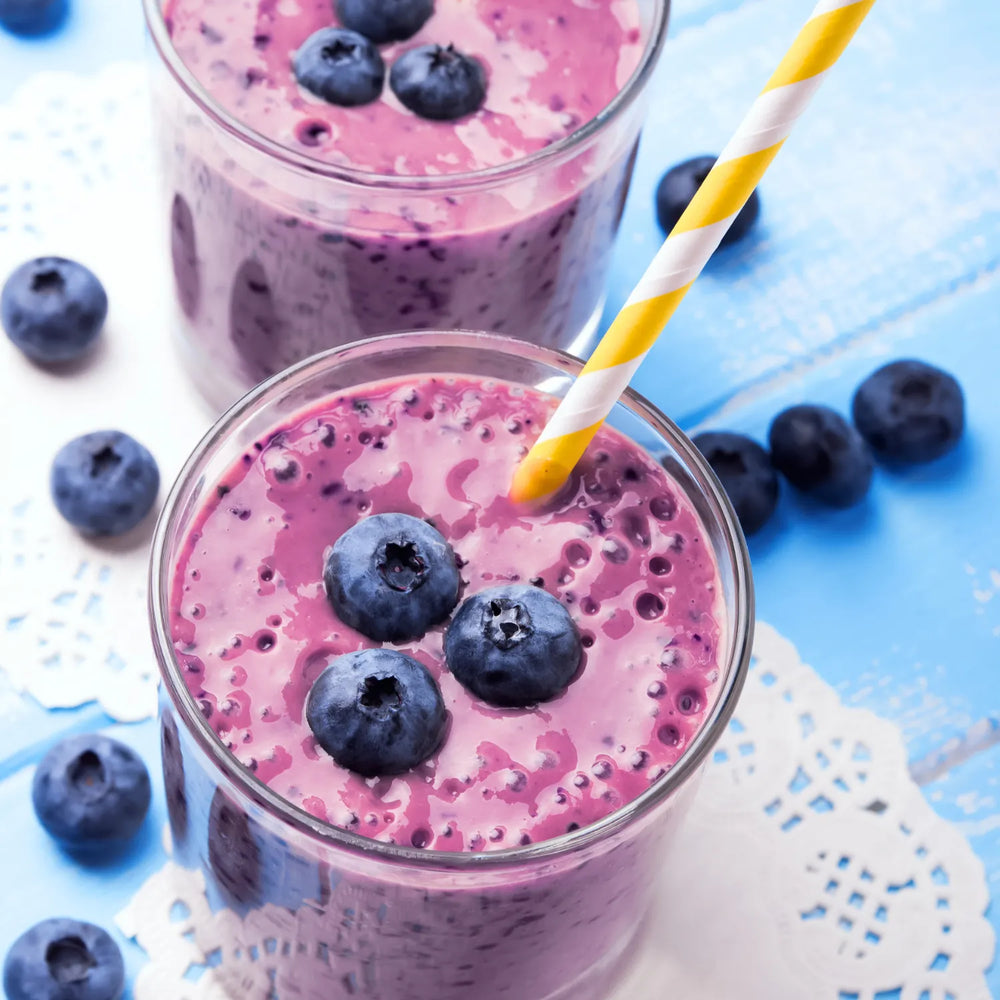
Fast protein shakes with complex nutrients
For those who have little time in the morning or prefer things to be uncomplicated, a shake is an ideal option for your fitness breakfast.
Example recipe (1 serving):
- 250 ml (plant-based) milk or water
- 1 scoop of whey protein (e.g. vanilla or chocolate)
- 1 handful of berries (frozen or fresh)
- 1 tsp nut butter or flaxseed
Preparation:
- Place liquid, protein powder and berries in a blender.
- Add nut butter or seeds and mix until creamy.
Advantages:
- Prepared in a flash, ideal for hectic mornings.
- Berries and nut butter provide you with important micronutrients and healthy fats.
- High protein content thanks to the protein powder for a powerful start.
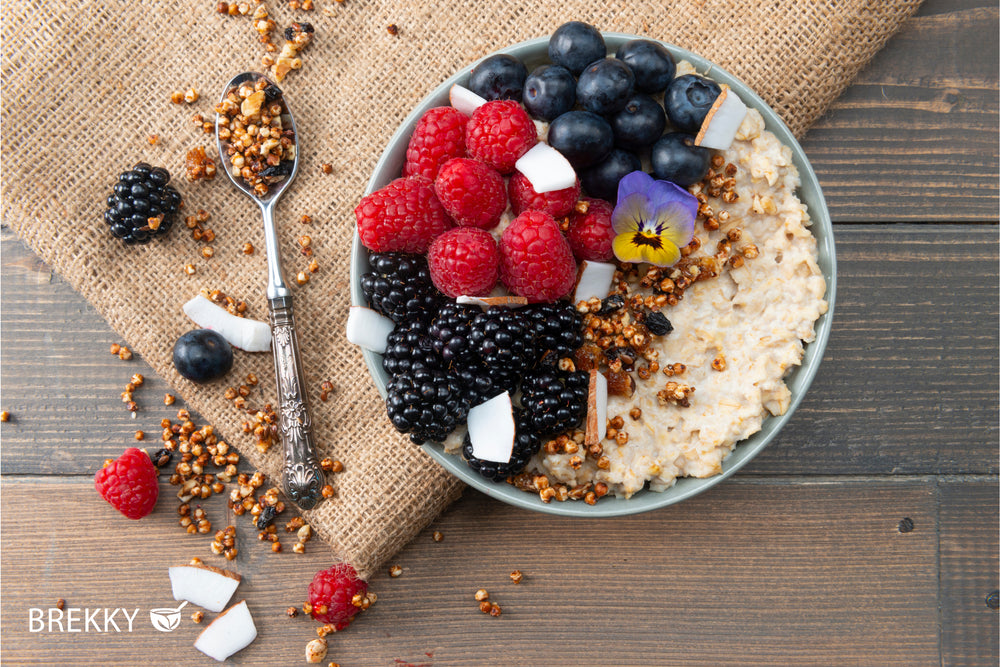
Pre-Workout Breakfast Ideas for Morning Athletes
If you train in the morning, you need an easily digestible protein breakfast. Heavy foods often sit unpleasantly on the stomach. Ideal options include:
- Protein Yogurt with Oatmeal : A blend of yogurt, oatmeal, berries, and a little honey. Quick to prepare, it provides energy and essential protein.
- Whole-wheat bread with cottage cheese and turkey : A hearty toast that provides both carbohydrates and protein.
- Protein bars for breakfast : Convenient for on the go, but make sure you choose a high-quality bar so it doesn't contain too much sugar.
These pre-workout ideas ensure a steady blood sugar level without putting a strain on your body. After your workout, you can reach for another protein-rich meal to optimally support recovery.
